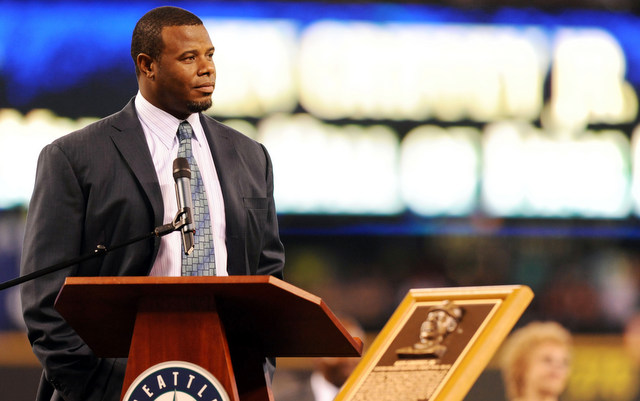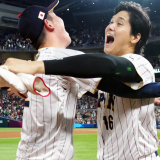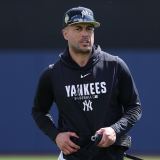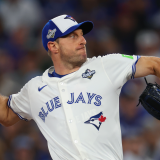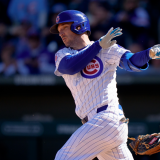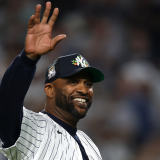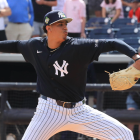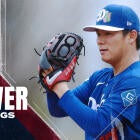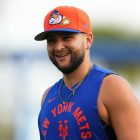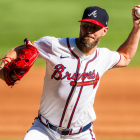The overwhelming Hall of Fame case for Ken Griffey Jr.
Ken Griffey Jr. is on the Hall of Fame ballot for the first and what should be the final time this year. He's a slam dunk, no doubt about it Hall of Famer.

More HOF: One-and-dones | Kendall
With the Winter Meetings now firmly in the rear-view mirror and the BBWAA Hall of Fame vote announcement less than a month away, we're now looking at individual Hall candidates and examining their cases. Today we continue with the great Ken Griffey Jr.
Simply put, Griffey is one of the best and most exciting players in baseball history, and his Hall of Fame case is overwhelmingly strong. In fact, I consider him the only lock for election this year. Sure, others might get in, but Griffey's the only no-doubt-about-it pick on the 2016 ballot.
Griffey was the first overall pick in the 1987 amateur draft -- believe it or not, he will be the first No. 1 overall pick in history to make the Hall of Fame -- and he started his career by becoming part of the first set of father-son teammates in history. Ken Sr. and Jr. played together for the Mariners for the first time on Aug. 31, 1990.
That was Ken Jr.'s second season in the big leagues. He hit .264/.329/.420 (108 OPS+) with 16 home runs and 16 steals in 127 games as a 19-year-old rookie in 1989. The 1990 season was Griffey's first as a bonafide superstar and the first of 11 consecutive All-Star Game selections.
Griffey hit .300/.366/.481 (136 OPS+) with 22 home runs and 16 steals in 1991. That represents his worst full season from 1991-99. He hit .302/.386/.594 (154 OPS+) with 360 homers and 135 steals from 1991-99. Here are his offensive ranks during the 1990s (min. 3,000 PA for rate stats):
WAR: 67.3 (second)
Home runs: 382 (second)
RBI: 1,091 (second)
Hits: 1,622 (sixth)
AVG: .302 (21st)
OBP: .384 (28th)
SLG: .581 (third)
OPS+: 152 (seventh)
Along with Barry Bonds, Griffey was the best all-around player in baseball during the decade. He was a top 10 offensive player and a dynamic center fielder who won a Gold Glove every year from 1990-99. Griffey made plays like this on the regular:
During his peak from 1993-98, Griffey hit .300/.388/.620 (158 OPS+) with 44.3 WAR, and he led the league in home runs three times: 40 in 1994, 56 in 1997 and 56 again in 1998. He also hit 45 homers in 1993 and 46 in 1996 but did not league the league. A wrist injury limited Griffey to only 72 games in 1995.
The Mariners reached the postseason for the first time as a franchise in 1995, when they won the AL West by going 79-66 in the strike-shortened season. Griffey went 9 for 23 (.391) with five (!) home runs in the five-game ALDS against the Yankees. He also scored the series-winning run on Edgar Martinez's walk-off double in the 11th inning of Game 5.
Griffey hit a league-leading 48 home runs in 1999 and another 40 in 2000, his age 29 and 30 seasons, though by then his game started to slip. He hit .279/.385/.567 (136 OPS+) with 10.4 WAR those years, which is obviously still excellent, but does represent a step down from his 170 OPS+ and 7.0 WAR peak seasons.
Following the 1999 season, Griffey said he wanted to be closer to his family and his hometown of Cincinnati. On Feb. 20, 2000, the Mariners traded Griffey to the Reds for Brett Tomko, Mike Cameron, Antonio Perez and Jake Meyer. He signed a nine-year, $112.5 million contract with the Reds after the trade.
If there is a case to be made against Griffey as a Hall of Famer, it involves the injury-riddled second half of his career. Griffey played in only 554 of 972 possible games from 2001-06, and while he was still quite productive (123 OPS+ and 6.7 WAR during those years), he wasn't on the field often enough to be a true difference maker.
Griffey was with the Reds from 2000 through the 2008 trade deadline, when he was dealt to the White Sox. He signed with the Mariners as a free agent after the 2008 season and played another year and a half with Seattle before announcing his retirement on June 2, 2010.
All told, Griffey hit .284/.370/.538 (136 OPS+) with 2,781 hits, 630 home runs and 1,836 RBI in his 22-year career. He hit his 600th career home run on June 9, 2008.
Griffey is sixth all-time on the career home runs list and one of only eight players with 600 career dingers. He's also 15th all-time in RBI and 35th all-time with 83.6 WAR. Griffey was a 13-time All-Star, a 10-time Gold Glover, and the 1997 AL MVP. He finish second in the 1994 AL MVP voting and had two other top four finishes (1996 and 1998). Griffey was also selected to MLB's All-Century Team.
Aside from the on-field production, Griffey was ultra-popular and pretty much the coolest dude in baseball. Whether it was wearing his hat backwards during the Home Run Derby, having the most popular rookie card ever, having his own video game -- in which Ken Griffey Jr. was on the only real player -- or appearing in celebrity slam dunk contests, Junior had a way of appealing to everyone.
Plus, you know, he had the prettiest swing many of us will ever see.
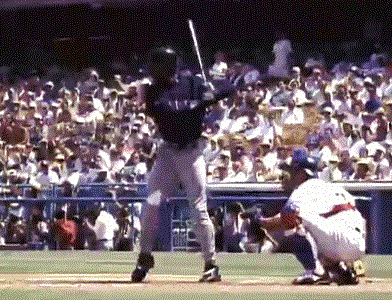
* fans self *
According to Jay Jaffe's JAWS system, Griffey is well above the Hall of Fame threshold in terms of both career value and peak value for center fielders. As of this writing, @NotMrTibbs has collected 44 public Hall of Fame ballots and Griffey has appeared on all 44.
Griffey will not appear on 100 percent of the ballots -- I'm not sure anyone ever will, at least not anytime soon -- but he is a very safe bet to appear on 90 percent. Seventy-five percent is required for induction.
Ken Griffey Jr. was one of the best and most exciting players in history. He's a no-doubt Hall of Famer.
Up Next: Trevor Hoffman
